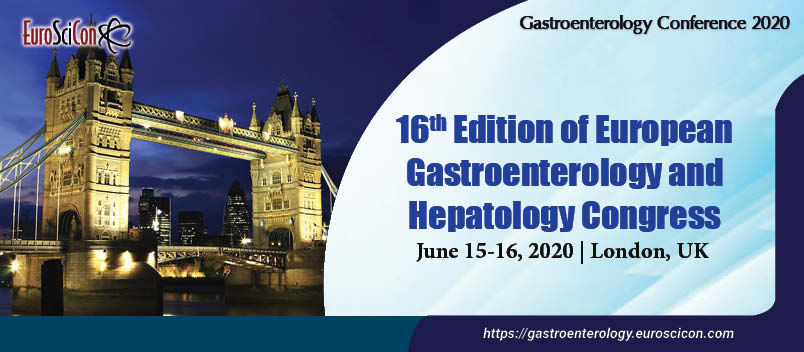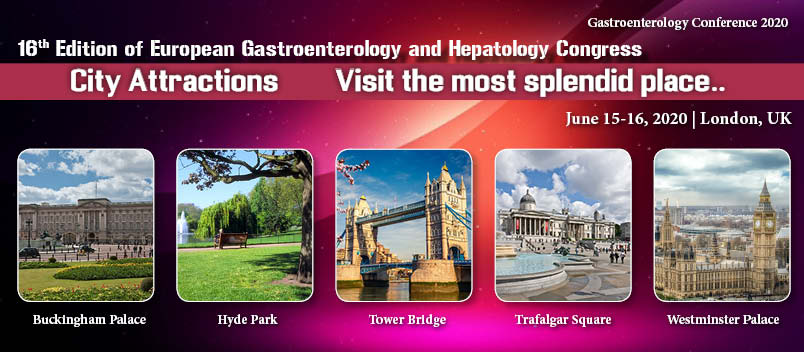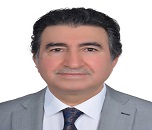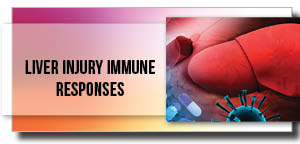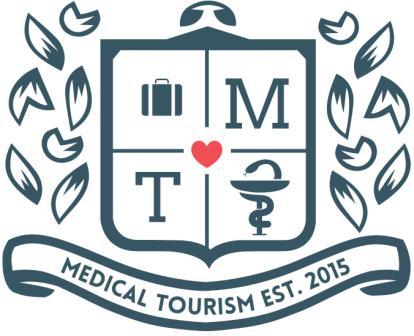Gastroenterology Conference 2021
About Conferences
EuroSciCon takes the privilege to invite all the participants, speakers, students, delegates, sponsors, exhibitors from all over the world to attend ''21th Edition of European Gastroenterology and Hepatology Congress’’, which is going to be held on June 21, 2021, which is a webinar. Gastroenterology Conferences 2021 will be organized under the theme “Recent Advancement in Gastroenterology and Hepatology Disease’’ that covers a wide range of critically important sessions. This conference deals with the current research developments in the field of Gastroenterology and also about the new treatment methods which are forge by scientists to treat various diseases in an easier way. This conference acts as the best Top Gastroenterology Universities platform for attendees to learn about the recent trends in Gastroenterology research and development.
The conference has been scheduled and implemented in accordance with the accreditation policies and requirements of the Accreditation Committee.Top Gastroenterology Universities
Gastroenterology Conferences 2021 is a driving stage for a focused plan of the current research in the field of gastroenterology which incorporates, visitor addresses, keynotes, symposiums, workshops, presentations, board talks and poster sessions. We welcome Gastroenterologists, Hepatologists, Common Doctors, Microbiologists, Oncologists, Specialists, Teachers, Analysts, Understudies, Industrial Pharmaceuticals and Business delegates to connect us at Webinar, in June 2021 for the power stuffed Gastroenterology Meet. Gastroenterology deals with the typical work and diseases impacting gastrointestinal tract which joins the gastrointestinal organs such as throat, stomach, small intestine, colon and rectum, pancreas, gallbladder, bile channels and liver. It includes a detailed understanding of physiology of the motility development of material through the stomach and digestive tract, the absorption and assimilation of wholesome components into the body, egestion, and work of liver in digestion.Gastro Education 2021 primarily concentrates on the most recent analytic and restorative methods for gastric maladies. This gastroenterology meeting unites Presidents and Eminent Personalities to investigate openings on developing stages in the field of Gastroenterology. With individuals from around the globe who concentrated on finding out about the most recent analytic and treatment systems of different gastrointestinal sicknesses and all the related parts of gastrointestinal ailments, this is your best chance to achieve the biggest collection of members from the whole world. The conference program centers on “Unravelling the Facts and Facets of Gastroenterology”.
Conferences Highlights
- Gastroenterology
- Gastrointestinal Immunology
- Gastrointestinal Surgery
- Gastrointestinal Disorders and Symptoms
- Inherited Liver Diseases
- Liver and Biliary
- Acid Related Diseases
- Hepato-Radiology
- Liver Injury and Immune Responses
- Recent Advances in Gastroenterology
- Hepato-Nephrology and Pathology
- Pancreatic Diseases
- Obesity and Bariatric Surgery
- Gastrointestinal Radiology
- Gastrointestinal Bleeding
- Liver Transplantation and surgery
- Pediatric Gastrointestinal Cancer
- Neuro Gastroenterology
- Gastrointestinal Endoscopy
- Gastroenterological Transplantation
- Gastro Oncology
Opportunities for Conference Attendees
For Researchers & Faculty:
- Speaker Presentations
- Poster Display
- Symposium hosting
- Workshop organizing
For Universities, Associations & Societies:
- Association Partnering
- Collaboration proposals
- Academic Partnering
- Group Participation
For Students & Research Scholars:
- Poster Competition (Winner will get Best Poster Award)
- Young Researcher Forum (YRF Award to the best presenter)
- Student Attendee
- Group Registrations
For Business Delegates:
- Speaker Presentations
- Symposium hosting
- Book Launch event
- Networking opportunities
- Audience participation
For Companies:
- Exhibitor and Vendor Booths
- Sponsorships opportunities
- Product launch
- Workshop organizing
- Scientific Partnering
- Marketing and Networking with clients
Sessions/Tracks
Gastroenterology emphasizes on digestive system and its disorders which includes alimentary canal. It involves a comprehensive understanding of the physiology of the gastrointestinal organs, including the motility of food through the stomach and intestine, the digestion and absorption of nutrients into the body, removal of waste out of the system, and the function of the liver as a digestive organ. Advancement in the diagnosis and treatment of gastrointestinal diseases has been noteworthy in the recent years. The investigation is going on with the new diagnostic procedures and novel therapeutic approaches for gastroesophageal reflux disease (GERD), pancreaticobiliary and post-surgical problems, Barrett’s Oesophagus, neuroendocrine tumours, and gastrointestinal stromal tumours.
- Diverticular diseases
- Inflammatory bowel disease
- Hepatology
- Haemorrhoids
- Biliary tract disease
- Irritable bowel syndrome
- Gastrointestinal pharmacotherapy
- Gastrointestinal therapeutics
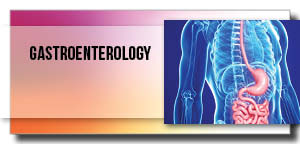
Gastrointestinal Immunology mainly focus on differentiation of gut-associated lymphoid tissue, regulation of innate and adaptive immune cell differentiation and function, genetic and epigenetic factors regulating immune responses and inflammation. It also gives idea about the clinical research, clinical trials and epidemiology studies on gastrointestinal inflammatory diseases including gluten-sensitive enteropathy, inflammatory bowel disease, and gastritis, malabsorption syndromes, diarrhea, gastric and duodenal ulcers and disease of the salivary glands excluding cystic fibrosis. The immune reaction of the gastrointestinal tract to the external stimulus or the failure to respond is the most important aspect of the gastrointestinal tract system. The gastrointestinal (GI) tract contains the largest mass of immune cells in the body. Scientific progress in the area of gut immune system and the immune abnormalities includes the latest developments in organ transplantation of the liver and gut. HIV infection in the gut and H. pylori gastritis are the recently discovered disease
- Gut-associated mucosal tissue (GALT)
- Autoimmune liver diseases
- Autoimmune pancreatitis
- Gastrointestinal microbiota
- Mucosal immunology
- Molecular immunology
- Intestinal mucosal innate immunity
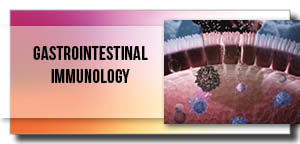
Gastrointestinal surgery is divided into upper GI surgery and lower GI surgery. Upper GI Surgery includes surgery for gastro-oesophageal reflux, Gall bladder disease, Hernias, benign oesophageal and gastric disorders, other benign pancreatic and hepatobiliary disorders. Lower gastrointestinal surgery includes colorectal surgery and surgery of the small intestine. Gastrointestinal surgery is a treatment for diseases of the parts of the body involved in digestion. This includes the Oesophagus (ee-sof-uh-gus), stomach, small intestine, large intestine, and rectum. It also includes the liver, gallbladder, and pancreas Hepatectomy is the surgical resection of the liver completely or a small part.
- Gastrointestinal Tract Imaging
- Gastrointestinal Endoscopy
- Endoscopic Innovations in Gastroenterology
- Palliative Gastroenterology
- Double balloon endoscopy
- Push Enteroscopy
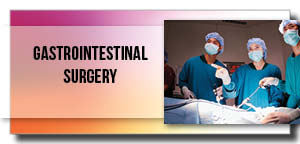
Gastrointestinal Disorders and Symptoms
Gastrointestinal motility is described by the movements of the digestive system, and the transit of the contents within it. Gastrointestinal Disorder is the disorder related to gastrointestinal tract mainly the Oesophagus, stomach, intestines, rectum and the accessory organs of digestion, like liver, gallbladder, and pancreas. The conditions of gastrointestinal disorders include constipation, irritable bowel syndrome, haemorrhoids, anal fissures, perianal abscesses, anal fistulas, perianal infections, diverticular diseases, colitis, colon polyps and cancer. Some of the major symptoms of GI disorders are Cramping, abdominal pain, inflammation of the large and small intestine, chronic diarrhoea, rectal bleeding and weight loss. Many of these can be prevented or minimized by maintaining a healthy lifestyle and submitting to cancer screening.
- Bleeding
- Bloating
- Constipation
- Diarrhea
- Heartburn
- Incontinence
- Nausea and vomiting
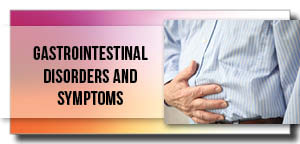
Inherited Liver Diseases are genetically transferred from ancestors to the parents, grandchildren. The most important and chronic hereditary liver diseases vary from person to the person. Over time, damage to the liver results in scarring (cirrhosis), this can lead to liver failure, a life-threatening condition. Now a day’s scientists are telling that liver cancer is also a hereditary disease. Important inherited disorders causing acute and chronic liver diseases include hemochromatosis, Wilson's disease, alpha 1-antiprotease and cystic fibrosis. Alpha 1-antiprotease is due to deficiency of antitrypsin.
- Hemochromatosis
- Alpha 1-antiprotease
- Cystic fibrosis
- Genetics and epigenetics of liver cancer
- Human liver proteome
- Genetic Liver Diseases
- Autoimmune Liver Disease
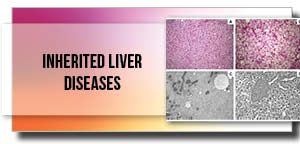
Hepatitis has been classified into four distinctive sorts (Hepatitis A, B, C and E) and over two billions of people were contaminated with hepatitis B at some point of time in their life. Around 350 million individuals are the carriers of infection. With broad immunizations and blood screening, the frequency of hepatitis B has been essentially diminished. Both, hepatitis B and hepatitis C are responsible for up to 80% of liver cancer cases. Some patients experience biliary colic, an intermittent and often severe pain in the epigastrium or right upper quadrant, and at times between the scapulas because of temporary obstruction of the cystic duct with a gallstone. If the cystic duct obstruction persists, the gallbladder becomes inflamed and the patient develops cholecystitis, an acute inflammation and infection of the gallbladder. One of the most common causes of extrahepatic biliary obstacle is choledocholithiasis, with one or more stones in the common bile duct or common hepatic duct causing biliary obstruction.
- Cirrhosis
- Alcohol abuse
- Hepatitis A, B, C, D, and E
- Epstein Barr virus
- Infectious mononucleosis
- Non-alcoholic fatty liver disease
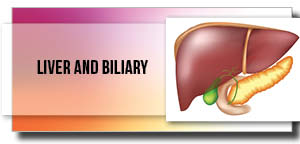
Acid Related Diseases is classified into 7 sections: the acid production in the stomach, the regulation of gastric acid secretion, the pharmacology of acid secretion, the biology of acid-related diseases, gastric & duodenal ulcer disease, gastro Oesophageal reflux disease, and Helicobacter pylori. Each of these sections is extremely well written and provides historical insights into the various areas. Gastric acid is of central importance in the pathogenesis of duodenal ulcer, gastric ulcer, and gastroesophageal reflux disease. Pharmacological reduction of acid secretion is the backbone of current treatment. But the optimal degree of acid suppression in people with asthma is at higher risk of developing GERD. Asthma flare-ups can cause the lower esophageal sphincter to relax, allowing stomach contents to flow back, or reflux, into the esophagus. Some asthma medications (especially theophylline) may worsen reflux symptoms.
- Gastroesophageal Reflux Disease
- Peptic Ulcer Disease
- Duodenal Ulcers
- Helicobacter pylori
- Stress-related Mucosal Disease
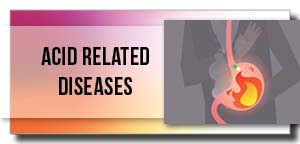
Hepato-Radiology is basically for precise diagnosing of biliary tract issue and is imperative for identifying liver injuries or damage and in patients with a suspected malignancy. It is important because the liver is the common site of metastatic spread and those who are at the risk of developing hepatocellular carcinoma. Liver is an essential organ that has many functions in the body that includes production of proteins and blood clotting factors, manufacturing triglycerides and cholesterol, glycogen synthesis and bile production. The liver filters the blood coming from the digestive tract and detoxifies the chemicals and metabolizes the vitamins, proteins, fats, carbohydrates and drugs.
- Angiography
- Computerized Tomography
- Positron Emission Tomography
- Ultrasonography
- Magnetic Resonance Imaging
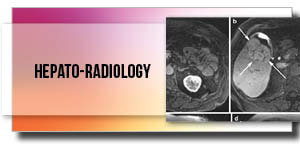
Liver Injury and Immune Responses
The liver is a key, frontline immune tissue. The balance between immunity and tolerance is important for the function of liver. Excessive inflammation in the absence of infection leads to sterile liver injury, tissue damage, and remodeling; insufficient immunity allows for chronic infection and cancer. Provocative phenotype can be credited to the intrinsic safe reaction produced by Kupffer cells, monocytes, neutrophils, and lymphocytes. The versatile invulnerable framework is affected by the intrinsic resistant reaction prompting liver harm.
Recent Advances in Gastroenterology
Gastroenterology has emerged from the backwoods of medical specialties from the past 20 years. It is because of massive improvement in the diagnosis and treatment fields. Gastroenterology has been divided into hepatology and “hollow organ” gastroenterology. Innovations in colorectal cancer screening, capsule endoscopy that prevents hepatitis C are some of the new advancement in gastroenterology. Current research in gastrointestinal therapeutics and recent advancement targets pioneering efforts and innovative studies across all areas of gastroenterology. There have been incredible advancements in the gastrointestinal and Hepatology space.
- Neuro-Gastroenterology
- Peroral endoscopic myotomy
- High-resolution manometry (HRM)
- Gastrointestinal Transplantation
- Gastrointestinal therapeutics
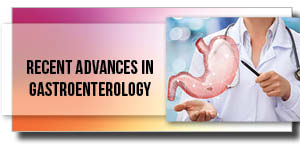
Hepato-Nephrology and Pathology
Hepato-nephrology is the field that deals with how the liver disease is affecting the kidney function. Hepatorenal syndrome is the medical condition that occurs in patients suffering from severe liver failure, alcoholic hepatitis and cirrhosis. This results in rapid deterioration of kidney function with an infection and bleeding in the gastrointestinal tract or overuse of diuretics. Patient also shows other symptoms like jaundice, altered mental status, evidence of decreased nutrition, the presence of ascites and elevated pressures in the portal vein system.
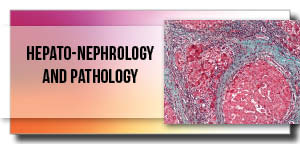
The pancreas is a gland which produces juices that help break down of food, hormones and help control blood sugar level. There are numerous diseases associated with pancreas. The inflammation of the pancreas is termed as pancreatitis. It happens when digestive enzymes start digesting the pancreas itself. Pancreatitis can be acute or chronic. There two forms of pancreatitis, differs in their causes and symptoms, and require different treatment. Acute pancreatitis is a rapid-onset inflammation of the pancreas, mostly frequently caused by alcoholism or gallstones. Chronic pancreas is a long-lasting pancreas inflammation. Pancreatic cancer and cystic fibrosis are genetic disorders in which thick sticky mucus may also block the tubes in pancreas.
- Hereditary Pancreatitis
- Acute Pancreatitis
- Chronic Pancreatitis
- Rapid pulse
- Type 1 diabetes
- Type 2 diabetes
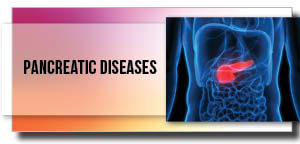
Bariatric Surgery or Metabolic Surgery includes a variety of procedures performed on people who are obese. Weight loss is achieved by reducing the stomach size with a gastric band or through removal of a portion of the stomach sleeve gastrectomy or biliopancreatic diversion with duodenal switch. Gastric bypass surgery is the only treatment option available for achieving prolonged weight-loss. Weight loss surgery has advanced over the years with jejunoileal bypass being one of the attempts at surgical weight reduction. Then came about laparoscopic vertical banded gastroplasty (LVBG), followed by Roux-en-Y gastric bypass surgery (RYGB), which is now the most commonly performed bariatric Surgery. Laparoscopic sleeve gastrectomy (LSG) is a single-stage operation for treatment of morbid obesity and requires less postoperative followup.
- Baptist Bariatric Surgery
- Dyslipidemia
- Sleep apnea
- Gastric Bypass
- Sleeve Gastrectomy
- Adjustable Gastric Band
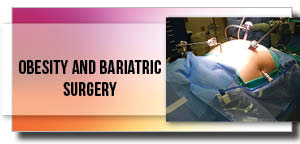
Radiology can be done in many ways like x-ray, computed tomography, Magnetic resonance imaging. Computed tomography now allows comprehensive assessment of abdominal and pelvic inflammatory and infectious processes, obstruction, tumour detection and staging, and display of vasculature and blunt trauma effects. Barium studies of the gastrointestinal tract, enteroclysis for small-bowel assessment, and conventional radiography have a role, despite the use of fiberoptic endoscopy. Fluoroscopy is important, but great advances in technologies have changed gastrointestinal radiology.
- Abdomen X-ray
- CT colonography (virtual colonoscopy)
- Herniography
- Voiding cystourethrogram
- Intravenous pyelogram
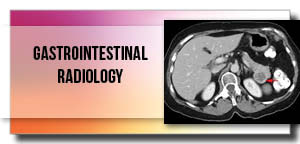
Gastrointestinal bleeding or gastrointestinal haemorrhage explains every form of hemorrhage (loss of blood) in the gastrointestinal tract, from the pharynx to the rectum. It has diverse causes, and a medical history, as well as physical examination, generally distinguishes between the main forms. The degree of bleeding ranges from undetectable to acute, massive and life-threatening bleeding. Initial emphasis is on resuscitation by infusion of intravenous fluids and blood transfusion. Treatment with proton pump inhibitors, octreotide, and antibiotics may be considered in some cases. Upper endoscopy or Colonoscopy is generally considered appropriate to identify the source of bleeding and carry out treatment.
- Crohn's disease
- Hemorrhoids
- Ulcerative colitis
- Cirrhosis
- Upper GI Bleeding
- Lower GI Bleeding

Liver Transplantation and surgery
Liver transplantation surgery is a technique to replace an injured or diseased liver with a healthy liver obtained from a healthy person. The liver is involved in various metabolic functions that includes metabolism of drugs and toxins, removing degradation products of normal body metabolism and synthesis of many important proteins and enzymes (such as factors necessary for blood to clot). Surgeons or Doctors suggest liver transplant surgery to the patients who suffer from chronic Drug-induced liver injury (DILI) or Chronic liver failure. This surgery carries a risk of complications such as infection, liver inflammation, blood clots, liver rejection, memory and thinking problems.
- Scientific Registry of Transplant Recipients (SRTR)
- Post-transplantation Care
- Hepatitis infection after liver transplantation
- Hepatic malignancy
- Metastatic malignancy
- Heterotopic transplantations
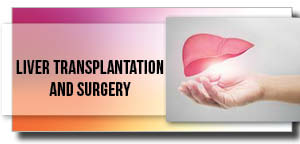
Pediatric Gastrointestinal Cancer
Surgeons continue their efforts to improve their techniques to operate colorectal cancers. They have a better understanding of what makes colorectal surgery most likely to be successful, such as making sure enough lymph nodes are removed during the operation. Oesophageal cancer usually begins in the cells that line inside the oesophagus. Pancreatic cancer begins in the tissues of your pancreas which is an organ in your abdomen that lies horizontally behind your stomach. Colorectal cancer starts in the colon. The colon and the rectum are parts of the large intestine. Pancreatic cancer is aggressive with few symptoms still the cancer is advanced. Symptoms may include abdominal pain, weight loss, diarrhoea, and jaundice. Treatments include surgery, chemotherapy, and radiation. Gallbladder cancer is relatively an uncommon cancer. It can be treated by removing the gallbladder, part of the liver and associated lymph nodes. It is found after certain symptoms such as abdominal pain, jaundice and vomiting.
- Gastric adenocarcinoma
- Gastrointestinal bleeding
- Ascites
- Hepatitis B & C
- Gastrointestinal infections
- Gastrointestinal cancer
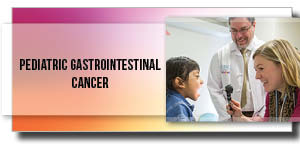
Neuro gastroenterology is study associated with brain, the alimentary canal, and their interaction with gastrointestinal motility and functional disorders. Neurogastroenterology concentrates on the functions, malfunctions, and the malformations of the sympathetic, parasympathetic, and enteric divisions of the digestive tract Neuro-gastroenterology encloses the study of brain, It works on It controls motility, endocrine secretions, and microcirculation of the gastrointestinal system. It mainly focuses on common Functional Gastrointestinal disorders like Irritable Bowel Syndrome, Heartburn, Abdominal Pain, Peptic Ulcer and Gallstone Pancreatitis which manages the gastrointestinal motility and Functional GIT disorders.
- Neurogastro motility
- Central nervous system (CNS)
- Endocrine secretions
- Neurologic disorders
- Neostigmine
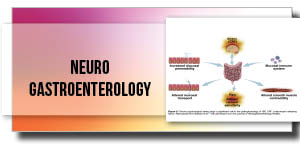
Gastrointestinal endoscopy is a procedure that is used to examine digestive tract. This examination is performed utilizing an adaptable fiberoptic tube with a minor TV camera towards the end. The camera is associated with either an eyepiece for coordinate viewing. The endoscope permits finding of gastrointestinal (GI) illness as well as treatment as well. Endoscopy has a few names, contingent upon the segment of the digestive tract. Colonoscopy: This method empowers the specialist to see ulcers, aroused mucous covering of the digestive system, anomalous developments and seeping in your colon. Endoscopy is a current symptomatic device that enables a specialist to see your little entrails.
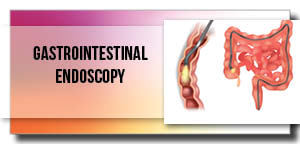
Gastroenterological Transplantation
The gastrointestinal transplantations involves the replacement of liver, pancreas, Oesophagus, little digestive system, and colon. The transplantation is a major surgery, and so the patients should be under observatory during post-transplantation. The complication starts immediately after the operation, where the body begins dismissing the organ. The complications can be analysed through hematological or imaging tests. Liver transplantation is made to evacuate the infected or harmed liver and transplant it with an entirety modern solid liver of an individual, who is called as a donor.
- Liver transplant
- Pancreas transplant
- Esophagus transplant
- Multivisceral transplant
- Small intestine transplant
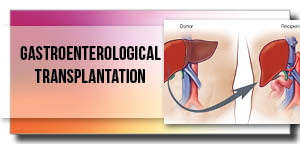
Digestive cancers has wide-range of effects on our health, nutritional status, and quality of life. It shows the symptoms of internal bleeding, acute pains, swelling, inability to digest, difficulty in swallowing or chronic constipation or acute diarrhoea. The diagnosis often requires endoscopy, followed by biopsy of suspicious tissue. The treatment depends on the location of the tumour, as well as the type of cancer cell and whether it has invaded other tissues or spread elsewhere, these factors also determine the prognosis. Oesophageal cancer is the sixth-most-common cancer in the world, and its occurrence is increasing.
- Gastrointestinal cancers
- Colorectal cancer
- New therapies of GI cancer
- Pancreatic cancer
- Gallbladder cancer
- Digestive cancer
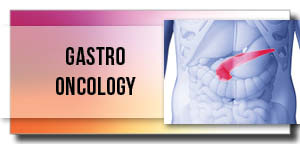
Market Analysis Report
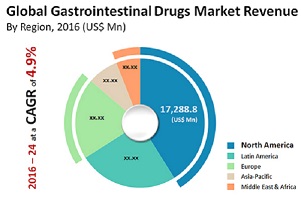
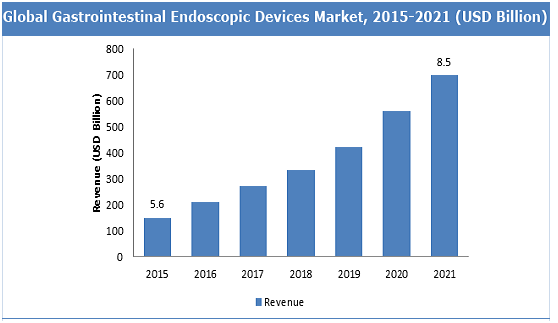
Learn More
Universities in UK:
Teesside University, Middlesbrough | University of Chest |University of Salford | Queen Mary University of London | University of Bradford | University of Hull | University of South Wale | University of Manchester | University of Nottingham | University of Liverpool Imperial College London | UCL (University College London | King's College London | Queen Mary University of London | St. George’s, University of London
Universities in USA:
Stanford University | Massachusetts Institute of Technology (MIT) | California Institute of Technology - Caltech | Harvard University | Princeton University | Yale University | University of Chicago | Johns Hopkins University | University of Pennsylvania | University of California, Berkeley | University of California, Los Angeles (UCLA) | Duke University | Cornell University | University of Michigan | Carnegie Mellon University | Northwestern University | New York University | University of Washington | University of California, San Diego | Georgia Institute of Technology (Georgia Tech) | University of Texas at Austin | University of Wisconsin Madison
University of Illinois at Urbana Champaign | University of California, Santa Barbara | Brown University | Washington University in St. Louis | University of North Carolina Chapel Hill | University of California, Davis | Purdue University | University of Southern California | The Ohio State University | University of Minnesota Twin Cities | Boston University | Pennsylvania State University | University of Maryland | Emory University | Rice University | Michigan State University | University of California Irvine (UCI) | Dartmouth College | University of Virginia | Georgetown University | University of Pittsburgh | University of Colorado at Boulder |
Vanderbilt University | Arizona State University | Case Western Reserve University | Indiana University Bloomington | Tufts University | University of Florida
Universities in Asia:
Tsinghua University, China | National University of Singapore, Singapore | Hong Kong University of Science and Technology | Peking University, China | Peking University | Nanyang Technological University, Singapore | Chinese University of Hong Kong | The University of Tokyo | Seoul National University | Sungkyunkwan University (SKKU) | Kyoto University | University of Science and Technology of China | Korea Advanced Institute of Science and Technology (KAIST) | Zhejiang University
City University of Hong Kong | Pohang University of Science and Technology (POSTECH) | Fudan University | Nanjing University | Korea University | Hong Kong Polytechnic University | Yonsei University (Seoul campus) | Ulsan National Institute of Science and Technology | King Abdulaziz University | Shanghai Jiao Tong University | National Taiwan University | Tel Aviv University | Hebrew University of Jerusalem | Khalifa University | Indian Institute of Science | Kyung Hee University | Tohoku University | Hanyang University | Nagoya University | Alfaisal University | Sabanci University | Wuhan University | University of Malaya | Sun Yat-sen University |
Osaka University | Southern University of Science and Technology (SUSTech) | University of Macau | Babol Noshirvani University of Technology | Technion Israel Institute of Technology | Nankai University | Gwangju Institute of Science and Technology | Huazhong University of Science and Technology | Koç University | United Arab Emirates University | Tongji University | Qatar University | Harbin Institute of Technology | Jordan University of Science and Technology Bar-Ilan University
Hokkaido University | National Chiao Tung University | Chung-Ang University | Hong Kong Baptist University | Soochow University | Southeast University | Beihang University | Fujita Health University | University of Tsukuba | National Cheng Kung University (NCKU) | Teikyo University | Tokyo Metropolitan University | Bilkent University | Tianjin University | Central South University | Xiamen University | Bogaziçi University | Renmin University of China | Xi’an Jiaotong University
Universities in Europe:
University of OxfordUniversity of Cambridge | Imperial College London | University of Edinburgh | LMU Munich | King’s College London | École Polytechnique Fédérale de Lausanne | Karolinska Institute | Heidelberg University | KU Leuven | Paris Sciences et Lettres – PSL Research University Paris | University of Manchester | Wageningen University & Research | University of Amsterdam | Delft University of Technology | Leiden University | Erasmus University Rotterdam | University of Groningen | Humboldt University of Berlin | Utrecht University | University of Warwick | Charité - Universitätsmedizin Berlin | Sorbonne University | University of Freiburg |
University of Bristol | University of Zurich | University of Tübingen | École Polytechnique | University of Basel | University of Helsinki | Lund University |University of Glasgow | RWTH Aachen University | University of Copenhagen | Uppsala University | University of Bonn | Queen Mary University of London | University of Birmingham | University of Bern | Aarhus University | Free University of Berlin | University of Sheffield | University of Southampton | Ghent University | University of Göttingen | Maastricht University | Radboud University Nijmegen | University of York | University of Paris | University of Oslo | Durham University | University of Vienna | Vrije Universiteit Amsterdam | Lancaster University | Pompeu Fabra University | University of Geneva | University of Exeter | University of Sussex |University of Hamburg | Sant’Anna School of Advanced Studies – Pisa | Technical University of Berlin | Université Catholique de Louvain | University of Nottingham | Scuola Normale Superiore di Pisa | University of Leeds | Autonomous University of Barcelona | University of Cologne | University of Mannheim | TU Dresden | University of Würzburg | Trinity College Dublin | University of Liverpool
Universities in Australia:
Australian Catholic University | Australian National University | Bond University | Carnegie Mellon University (Australia campus) | Central Queensland University | Charles Darwin University | Charles Sturt University | Curtin University | Deakin University | Edith Cowan University | Federation University Australia | Flinders University | Griffith University | James Cook University | La Trobe University | Macquarie University | Monash University | Murdoch University | Southern Cross University | Swinburne University of Technology | Torrens University Australia | University of Adelaide | The University of Canberra The University of Divinity | University of Melbourne
Universities in Canada:
McGill University | University of Toronto | University of British Columbia | University of Alberta | Université de Montréal | McMaster University| University of Waterloo| Western University | University of Calgary | Queen's University
Universities in Middle East:
Hebrew University of Jerusalem | Technion Israel Institute of Technology | Weizmann Institute of Science | Ben Gurion University of the Negev | King Saud University | University of Tehran | King Abdulaziz University | Middle East Technical University / Orta Dogu Teknik Üniversitesi | King Abdullah University of Science & Technology | Bar Ilan University | Tehran University of Medical Sciences | University of Haifa | Cairo University | Istanbul Technical University / Istanbul Teknik Üniversitesi | Bogaziçi University | American University of Beirut | Sharif University of Technology Tehran | Hacettepe University | Amirkabir University of Technology | Bilkent University | Istanbul University | Ankara University | King Fahd University of Petroleum & Minerals | Shahid Beheshti University of Medical Sciences | University of Anatolia / Anadolu Üniversitesi | Tarbiat Modares University | Koç University | Isfahan University of Technology | Gazi University | Qatar University | Iran University of Science & Technology Tehran
Gastroenterology Societies:
Alabama Gastroenterological Society. President: J | Arizona. Phoenix Society of Gastroenterology. | California. San Diego. | Florida. Florida Gastroenterologic Society.| Georgia. Georgia Gastroenterologic and Endoscopic Society. | Louisiana. Louisiana Gastroenterology Society. | Maine. Maine Gastroenterology Society.| Azerbaijan Gastroenterologists and Hepatologists Soc | The Africa-Middle East Association of Gastroenterology (AMAGE) | Congolese Association of Gastroenterology, D.R. Congo | Egyptian Association for Research and Training in Hepatogastroenterology | Egyptian Society of Gastroenterology | Ethiopian Gastroenterology Association | Ghana Association for the Study of Liver and Digestive Diseases | Iranian Association of Gastroenterology and Hepatology | Iraqi Society of Gastroenterology and Hepatolog | The Israeli Society of Gastroenterology and Liver Disease | Jordanian Society of Gastroenterology & Hepatology | Gastroenterology Society of Kenya | Lebanese Society of Gastroenterology | Société Malgache D'Hepato-gastro-enterologie Et D'Endoscopie Digestive | Society for Gastroenterology and Hepatology in Nigeria (SOGHIN) | Palestinian Society of Gastroenterology | Rwandan Society for Endoscopy | Saudi Gastroenterology Association | South African Gastroenterological Society | Sudanese Society of Gastroenterology | Syrian Society of Gastroenterology | Tunisian Society of Gastroenterology | Turkish Society of Gastroenterology | Uganda Gastroenterology Society | Emirates Gastroenterology & Hepatology Society | Yemen Gastroenterological Association | Zambia Association for Gastroenterology & Nutrition (ZAGAN) | The Gastroenterology and Hepatology Association of sub-Saharan Africa (GHASSA) | Africa and Middle East Association for Gastroenterology Congress | African Middle East Association of Gastroenterology (AMAGE) | European Society of Gastrointestinal Endoscopy (ESGE) – Position Statement | African Liver patients Associations | Endoscopic Group of the Austrian Society of Gastroenterology | Belgian Society of Gastrointestinal Endoscopy | Association of Gastroenterologists of Bosnia and Herzegovina | Bulgarian Association of Surgeons and Gastroenterologists | Endoscopic Section of Croatian Society of Gastroenterology | Cyprus Society of Gastroenterology | Czech Gastroenterological Society | Finnish Society of Gastroenterology | French Society of Digestive Endoscopy | Endoscopic Section of the Hungarian Society of Gastroenterology (HSGE) | Endoscopic Section of the Iraqi Society of Gastroenterology & Hepatology | Irish Society of Gastroenterology (ISG) | Israeli Gastroenterology Association | Italian Society of Digestive Endoscopy | Latvian Association of Gastrointestinal Endoscopy | Lebanese Society of Gastroenterology | Lithuanian Society of Gastrointestinal Endoscopy | Luxembourg Society of Gastroenterology & Digestive Endoscopy | Libyan Society of gastrointestinal endoscopy | Macedonian Society of Gastroenterohepatology | Gastroenterohepatology Association of Montenegro | Endoscopy Section of the Netherlands Society of Gastroenterology (NVGE) | Norwegian Gastroenterology Society | Palestinian Society of Gastroenterology | Portuguese Society of Digestive Endoscopy (SPED) | Romanian Society of Gastrointestinal Endoscopy | Russian Society for Digestive Endoscopy (REndO) | Serbian Society of Gastrointestinal Endoscopy | Endoscopy Section of the Slovak | Slovenian Society of Gastrointestinal Endoscopy | Spanish Association of Digestive Endoscopy | Sudanese Society of Gastroenterology | Swedish Society of Gastroenterology | Swiss Society of Gastroenterology | Endoscopy Branch of the Syrian Society of Gastroenterology (SSGE) | Tunisian Society of Gastroenterology & Digestive Endoscopy | urkish Society of Gastroenterology | Ukrainian Association of Endoscopy | Emirates Gastroenterology and Hepatology Society | Endoscopy Committee of the British Society of Gastroenterology (BSG) | Yemeni Study Association for Liver, Biliary | GIT Diseases (YSALBG) | Asian Pacific Association of Gastroenterology (APAGE) | Afghanistan Gastroenterology and Endoscopy Society | Gastroenterological Society of Australia | Bangladesh Gastroenterology Society | Chinese Society of Gastroenterology | The Hong Kong Society of Gastroenterology | Indian Society of Gastroenterology | Indonesian Society of Gastroenterology | The Japanese Society of Gastroenterology | National Association of Gastroenterology of the Republic of Kazakhstan | The Korean Society of Gastroenterology | Malaysian Society of Gastroenterology & Hepatology | Mongolian Gastroenterology Association | Myanmar Gastroenterology & Liver Society | New Zealand Society of Gastroenterology Inc.| Pakistan Society of Gastroenterology & GI Endoscopy | Philippine Society of Gastroenterology | Gastroenterological Society of Singapore | Sri Lanka Society of Gastroenterology | The Gastroenterological Society of Taiwan | Gastroenterological Association of Thailand | Vietnam Association of Gastroenterology (VNAGE)
